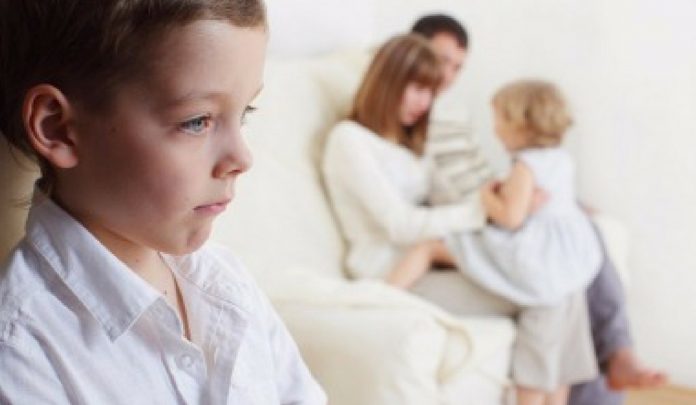Symptoms of health anxiety are common already during childhood and adolescence – and if the children do not receive the correct help, the anxiety can become a permanent problem with serious personal and socio-economic consequences. This is shown by a new research result from Aarhus University and the University of Copenhagen.
Ida is 11 years old. Six months ago, her grandmother died of cancer after a long illness and since then Ida has become more and more anxious that she too will get cancer and die. The anxiety can be triggered when she passes by a hospital or sees people who look ill. She needs reassurance from her parents many times a day and she has also begun to involve the adults at school. Her parents have taken Ida to the doctor several times, hoping that this will help, but Ida’s worries and anxiety begin again shortly after the doctor’s appointment.
Ida’s story is not unusual. A new study shows that symptoms such as excessive concern about having a serious disease, often called health anxiety, are already common in childhood and adolescence. The study was carried out by researchers from Aarhus University and the Child and Adolescent Psychiatric Department, Aarhus University Hospital, in collaboration with the University of Copenhagen and the Research Unit – Child and Adolescent Mental Health Centre, the Capital Region of Denmark.
“Most people experience periods when they are worried about having a serious physical illness. If the anxiety becomes excessive and persistent, they can develop into actual health anxiety or hypochondriasis. There is a great need for more focus on health anxiety in children and adolescents, including developing more specialised psychological treatment, which already exists for adults with health anxiety,” explains Clinical Professor and Medical Doctor Charlotte Rask, who is the senior researcher behind the study.
Anxiety can excerpt a hold on the young people
Almost 1,300 children from the Danish Copenhagen Child Cohort 2000 population study were examined for health anxiety at ages 11 and 16. The majority of children with many symptoms of health anxiety at age 11 had decreasing symptoms, but the researchers found a worrying pattern among a small group of approx. 1.3 per cent of the adolescents who had persistent and significant problems with health anxiety up to the age of 16.
“In addition to having many symptoms of health anxiety, this group also used two to three times as many resources at general practitioners and medical specialists, compared to the young people who only had a few symptoms of health anxiety. This finding may be worrying, as this type of disease- and contact behaviour may actually perpetuate the young persons’ health anxiety, in so far as the behaviour can only briefly alleviate the health worries they have, but doesn’t solve their underlying problems with anxiety,” says Martin Rimvall, medical doctor and the principal author behind the study.
Charlotte Rask elaborates:
“There is a very close correlation between anxiety, increased attention on the body and how symptoms are experienced. However, it’s rarely the symptoms in themselves, but the health concerns that follow, which are the primary burden for people with health anxiety. This is often not discovered, as fluctuation in various symptoms and the fear of overlooking a serious illness can keep the person in a maladaptive pattern of repeated contacts with own GP and examinations in the hospital system,” says Charlotte Rask.
Parents play a special role
GPs and medical doctors can therefore unconsciously maintain the health anxiety, as the patient may easily think that he/she would not be referred to further medical examinations if there was nothing to worry about.
“Parents play a special role in the case of children and adolescents, by either helping to stop excessive GP visits or by helping to support them,” she says.
The study, which has just been published in the Journal of Child Psychology and Psychiatry, also shows that children with recognised physical illness at the age of 11 have a particular increased risk of developing symptoms of health anxiety later in adolescence.
“Greater awareness among health professionals of the psychological consequences of physical illness in children and young people can therefore provide us with an important potential for prevention,” says Charlotte Rask.
Anxiety during the pandemic
Other population studies have shown that over the past decade health anxiety has become an increasing problem in the general population – and according to the researchers, this can be attributed to an increased media focus on serious illness and easily accessible online information. In line with these findings, there are now also studies which suggest that health anxiety is an increasing problem during the Covid-19 pandemic.
“As our study shows that health anxiety may already be an important problem among children and adolescents even before the outbreak of the Covid-19 pandemic, there are now even more reasons to focus on the young people’s mental health and, in particular, health anxiety,” says Martin Rimvall.
Copenhagen Child Cohort 2000:
Copenhagen Child Cohort 2000 is a research project that examines children’s development from birth to adolescence. The objective is to gain knowledge that can be used to prevent some of the most common health problems in children and adolescents.
Health anxiety or illness anxiety:
Health anxiety or disease anxiety is a disorder in which a person is predominantly plagued by the fear of having or contracting a serious illness. Often it is the thought of cancer, heart disease or a neurological disease which causes this fear. But it can also be other diseases. In the same way as some people suffer from claustrophobia, others can suffer from anxiety. The anxiety about diseases often revolves around the experience of new symptoms and bodily sensations.
For a person with health anxiety, it is the thoughts about a disease and the anxiety in itself that is the problem. It is usually not the physical symptoms themselves that are so concerning.








